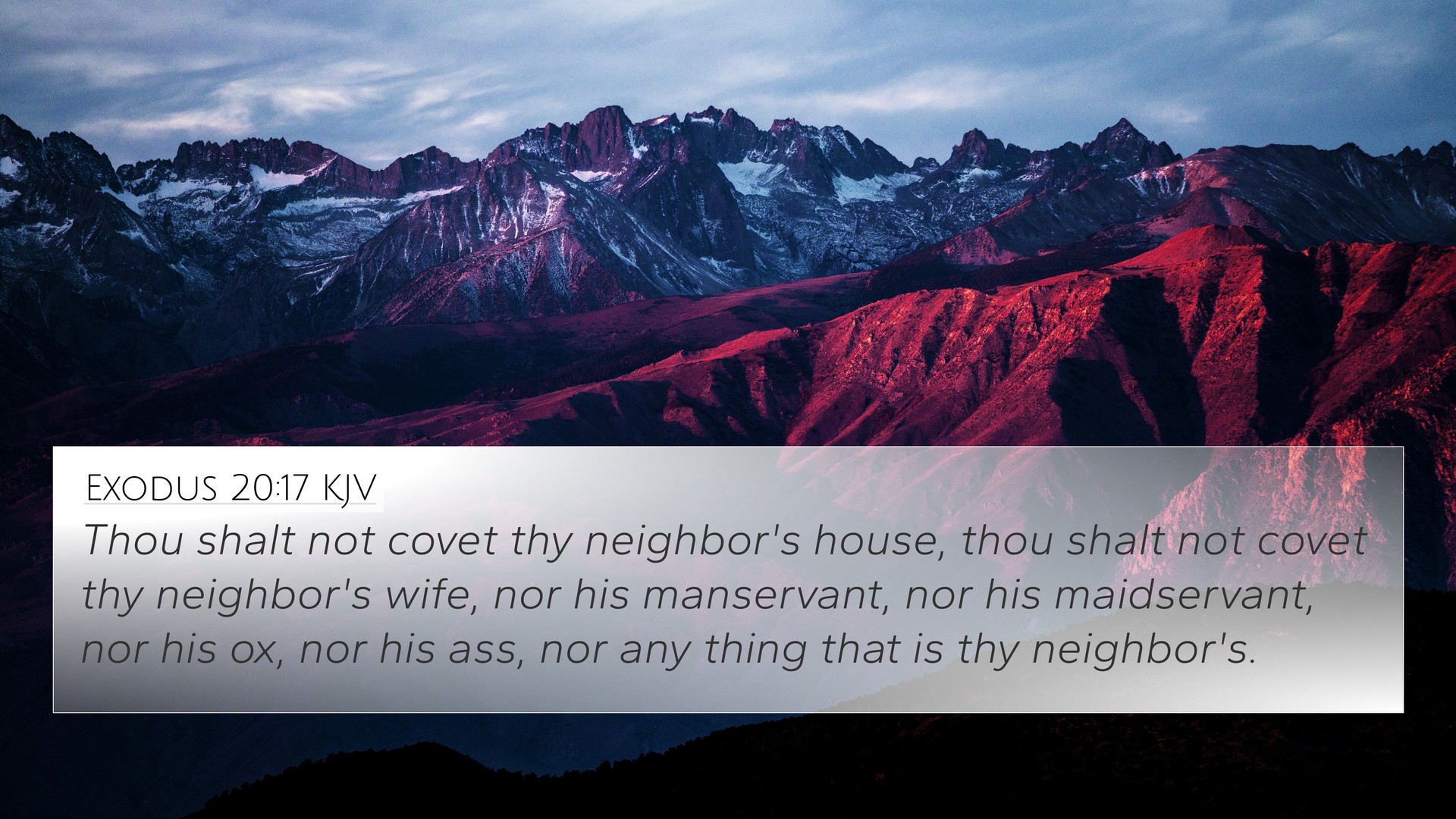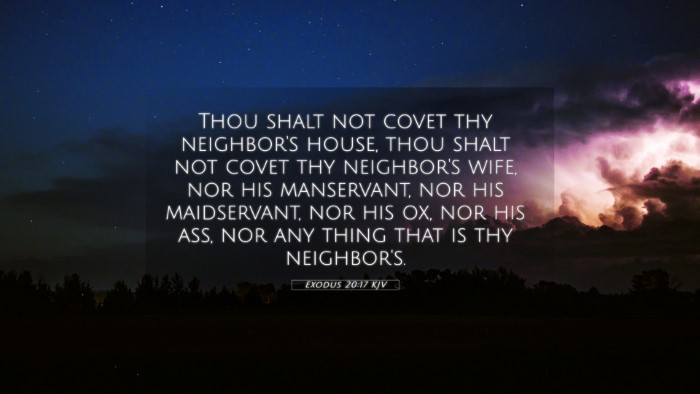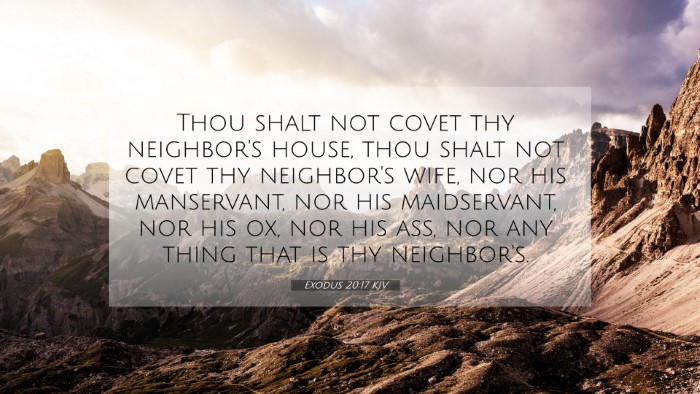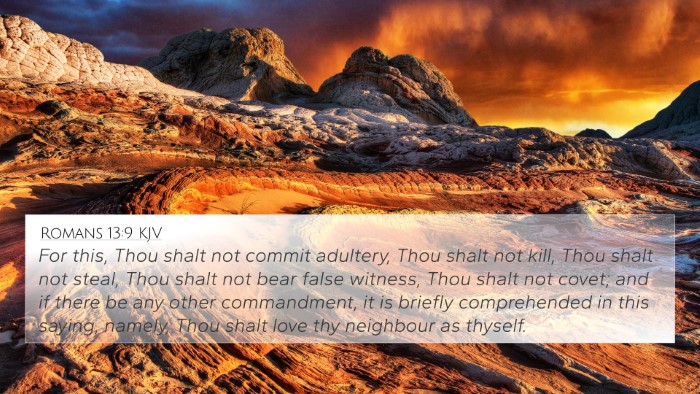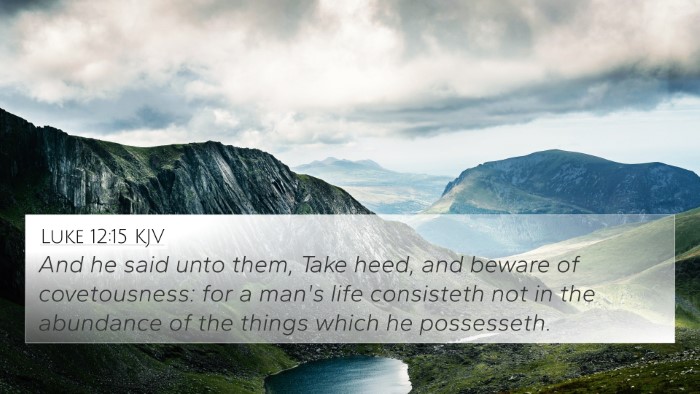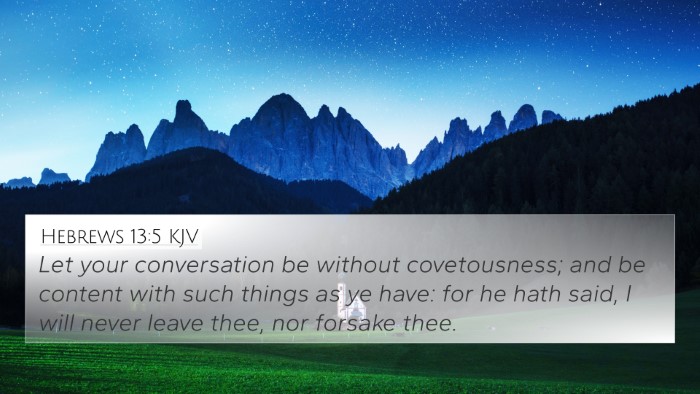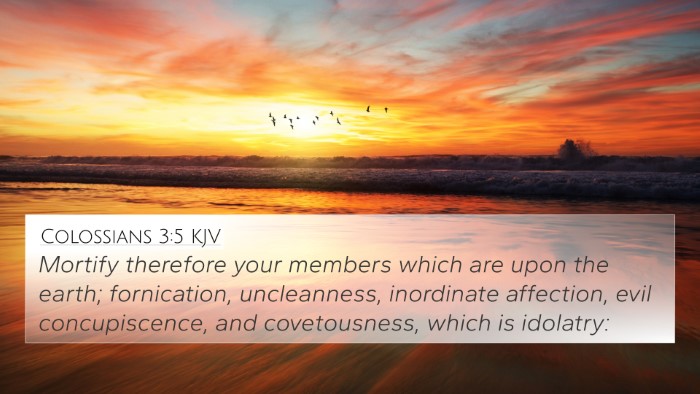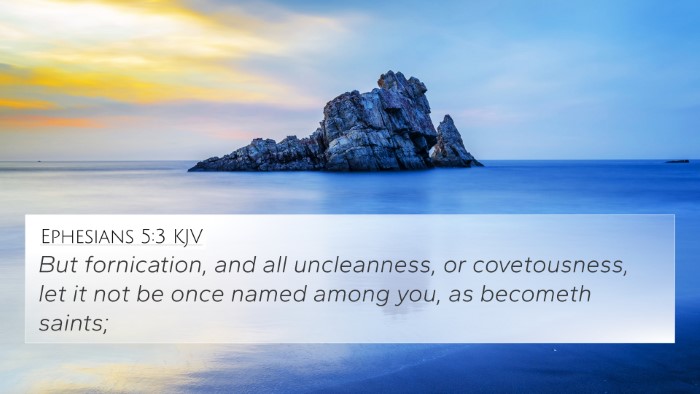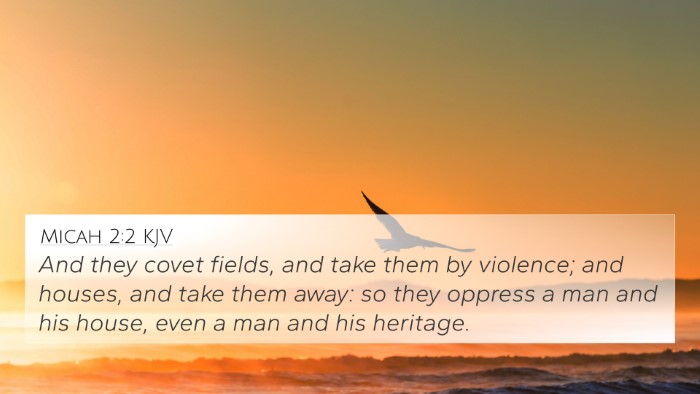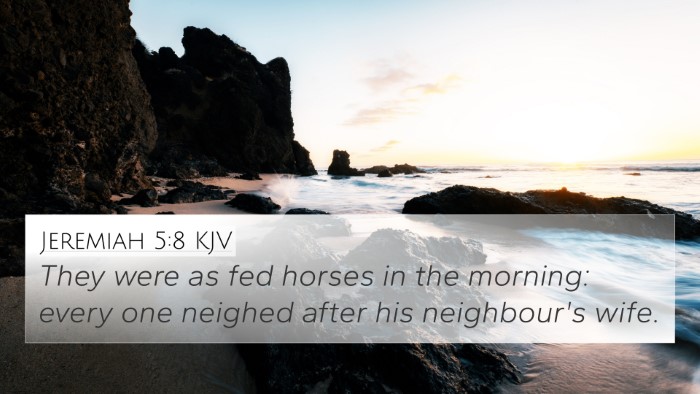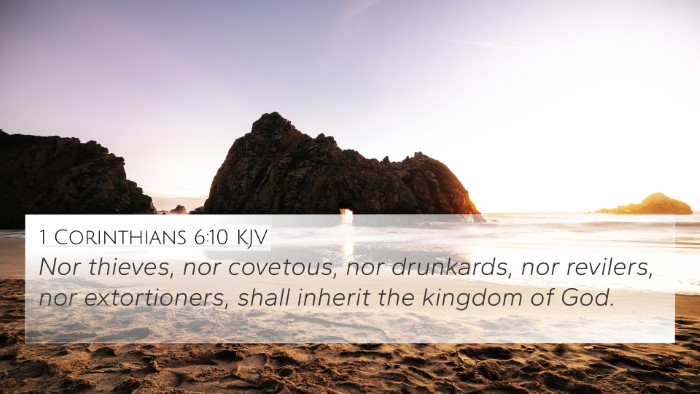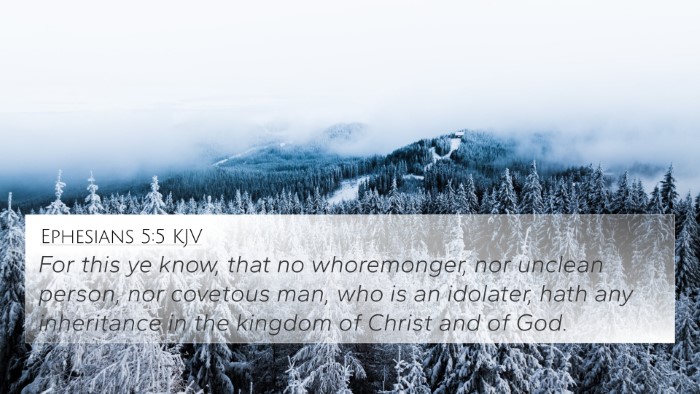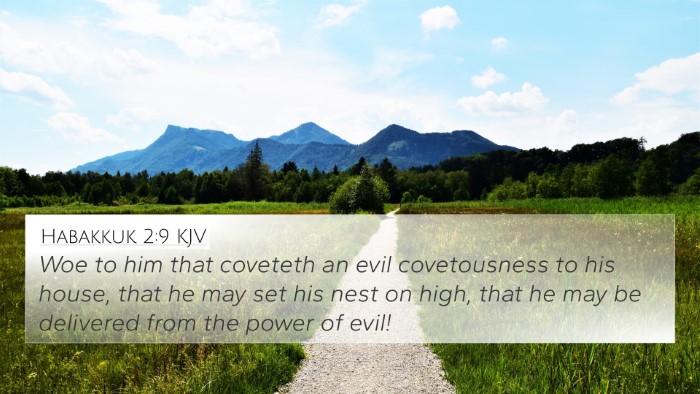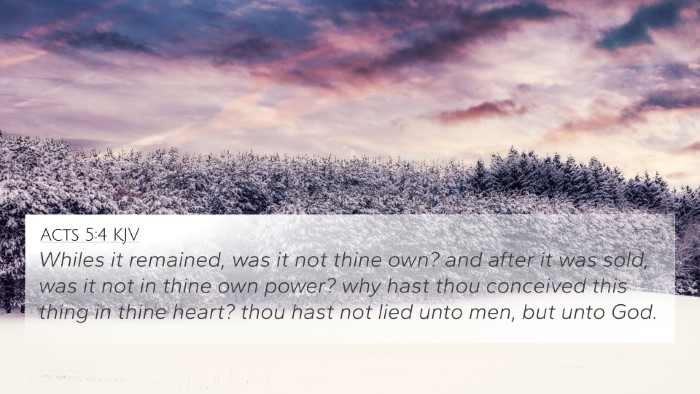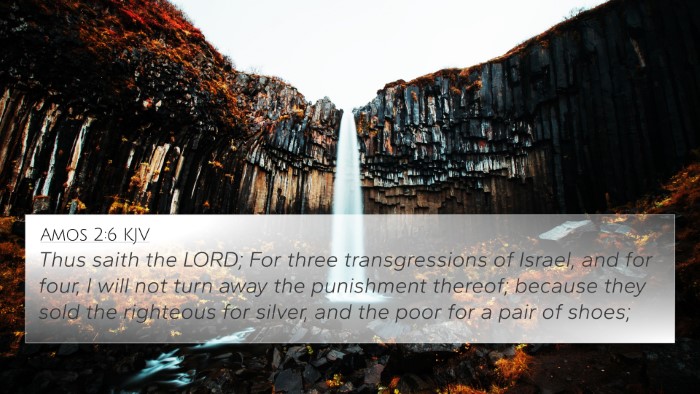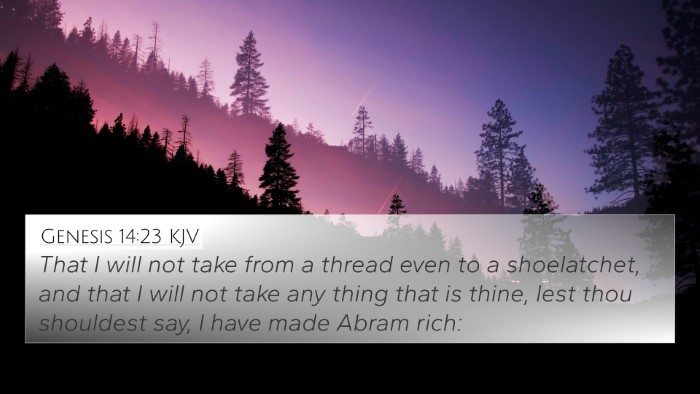Understanding Exodus 20:17
Verse Reference: Exodus 20:17 states, "You shall not covet your neighbor's house; you shall not covet your neighbor's wife, or his male servant, or his female servant, or his ox, or his donkey, or anything that belongs to your neighbor."
Summary of Meaning
This commandment addresses the internal desires of an individual, emphasizing that sin begins in the heart rather than external actions. Coveting leads to further sins such as theft, adultery, and dishonesty. Unlike the previous commandments that focus on specific actions, this commandment focuses on thoughts, indicating that God desires not only outward obedience but also inward purity.
Insights from Public Domain Commentaries
Matthew Henry's Commentary:
Matthew Henry explains that this commandment serves as a safeguard for the sanctity of relationships and property. It highlights the danger of desiring what belongs to others, which can lead to a breakdown of community and trust. Henry emphasizes that coveting is a root sin that can give birth to multiple outward sins, thus revealing the importance of controlling one's desires.
Albert Barnes' Notes:
Barnes notes that coveting encompasses more than just tangible possessions; it includes the desire for a neighbor’s status or relationships. He points out that the commandment teaches not just about refraining from actions but about taking responsibility for thoughts and intentions that can lead to sinful behavior. This internal reflection is vital for a true moral life.
Adam Clarke's Commentary:
Adam Clarke discusses the broader implications of this command, stating that the focus on the heart is crucial. He reflects on how societal harmony can be disrupted by envy and greed. Clarke suggests that the commandment encourages individuals to cultivate contentment with what they have, promoting a spirit of peace and gratitude rather than envy.
Cross-References for Exodus 20:17
This verse has several connections with other Biblical texts that can be analyzed for a deeper understanding:
- James 1:14-15: Discusses how temptation leads to sin, illustrating how desire is the precursor to sinful actions.
- Colossians 3:5: Advises believers to put to death whatever belongs to their earthly nature, including covetousness which is idolatry.
- Matthew 5:28: Jesus expands on this commandment, explaining that even lusting in the heart is akin to committing adultery.
- 1 Timothy 6:9-10: Warns of the dangers of desiring wealth, proving that greed can lead to all kinds of sorrows.
- Proverbs 23:17-18: Encourages individuals not to be envious of sinners but to maintain a healthy fear of the Lord.
- Romans 7:7: Paul discusses the role of the law in revealing sin, which includes the covetous desires of the heart.
- Hebrews 13:5: Advises believers to be content with what they have, linking contentment with godliness.
- Luke 12:15: Jesus warns to guard against all kinds of greed, reinforcing the importance of contentment.
- Ecclesiastes 5:10: Reflects on the emptiness of pursuing riches, echoing the futility of covetous desires.
- Philippians 4:11-12: Paul advises on the value of being content regardless of circumstances, which counters the spirit of coveting.
Significance in the Broader Biblical Context
The commandment to not covet stands as a pivotal lesson in the larger narrative of the Bible concerning sin, righteousness, and human relationships. When considering the connections between Bible verses, it is clear that the theme of controlling desires is prevalent throughout scripture.
Thematic Connections
This venture into understanding Exodus 20:17 can lead us to engage in a cross-referencing Bible study that reveals connections between the Old and New Testaments. Themes of greed, desire, and moral integrity appear consistently, from the teachings of the prophets to the apostolic letters. Through these connections, we can observe:
- Desire and Sin: A recurring theme demonstrating that unchecked desires lead to sin.
- Contentment: The pursuit of contentment is a guiding principle in both Testaments.
- Relationships: How desires can corrupt relationships is a continuous narrative across scripture.
- Internal vs. External Actions: The importance of heart attitudes in spirituality is emphasized throughout biblical texts.
Practical Application
Understanding Exodus 20:17 and its implications can be beneficial for personal spiritual growth. Believers are encouraged to cultivate awareness of their desires and to strive for contentment. Tools for bible cross-referencing can further facilitate this exploration, allowing individuals to understand how different verses interrelate, enhancing their studies and sermons.
By applying the wisdom gleaned from public domain commentaries alongside scriptural cross-references, one engages in a deeper interpretation of not only Exodus 20:17 but also its relevance in everyday life.
Conclusion
Exodus 20:17 serves as a powerful reminder of the significance of our inner thoughts and desires. Through thematic Bible verse connections and scriptural cross-referencing, we gain a holistic view of how this commandment integrates with God's desires for His people. By actively seeking to align our hearts with His will, we can foster a life that honors Him.
